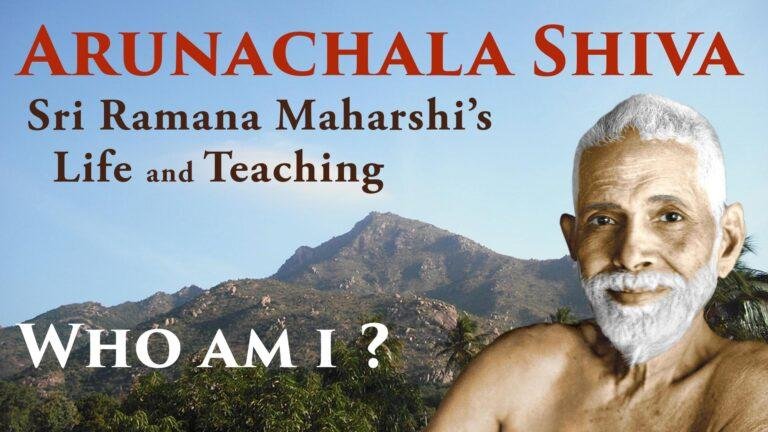
It is and it isn’t. People are experience oriented because they feel they need to get something. After years of picking up various experiences along the way they get totally conditioned to seeing everything in terms of experience, how they feel about things. But experience is limited. And very dumb. It does not teach them anything. It can’t teach them anything unless they are out to learn something. So when they start to get disillusioned with experience and turn within to seek the Self they naturally continue seeking in terms of experience.
But a few rare people understand that seeking experience, particularly the experience of enlightenment, is not the way to go. In the old days many more people sought understanding, perhaps because of the nature of society, who knows? One reason Sri Ramana emphasises Self-enquiry is because the problem is ignorance. Experience does not remove ignorance. It is motivated by ignorance. Only knowledge removes ignorance. And you get knowledge by making an enquiry or by being taught. Everybody starts out chasing experience but the clever ones switch it off at some point and head for knowledge.
James Swartz on ‘Who Am I?’
147
Arunachala Shiva
So how would you express that knowledge?
A negative way to express Self-realisation is ‘I am not the doer. I am not the enjoyer.’ In Sri Ramana’s case he realised ‘I am not the body’ because he found himself to be quite aware even as the body was laying ‘dead’ on the floor. ‘I am not the body’ is the equivalent of ‘I am not the doer’ because the body is the doer. Sri Ramana was called a jnani because he gained knowledge of who he was during the experience. The experience vanished after some time but the knowledge of who he was remained permanently. It was there operating in the background regardless of what experience he was having. At the end of his life he must have been experiencing serious pain, but his Self-knowledge was unexpected. And he was unexpected because he was the Self. But the body-mind complex suffered.
If you know the real spiritual India you will understand that while enlightenment is rare with reference to the total number of people on the planet, there are tens of thousands of ‘fully’ enlightenened people worldwide, and particularly in India. I’ve lived here many years and was introduced to the highest levels of Indian spirituality when I was quite young and I’ve lived with a number of enlightened people of the same caliber as Sri Ramana.
it sounds like heresy and contradicts the conventional wisdom.
Yes, I suppose it does. But conventional wisdom is often wrong. It is rare but not as rare as it is made out to be. One source of ignorance accounting for this belief is the ego’s lack of spiritual self-confidence. It always resists the truth and in fact often does everything it can to sabotage one’s efforts to attain it. So to keep it from doing the work, it imagines that only supermen are capable of it.
Sri Ramana seems to be more of a jnani than a Yogi.
Sri Ramana’s teachings can be confusing if one does not understand the
difference between Yoga and Vedanta because he used both languages 148
when he was speaking. e language of Yoga is well-known and most people who came to him were not qualified for enlightenment so he used that language. If you are not qualified it does no good to try to enlighten someone with either words or silence because they are simply incapable of getting it. So what Sri Ramana did was to encourage them to purify themselves by following a path which typically involved some sort of Yogic discipline and surrender to God.
What do you mean by ‘qualified for enlightenment’?
Many Western people have no idea what sadhana (spiritual practice) is. ey actually think that they can just get a ticket to India and get on the spiritual circuit and attend a Satsang (meeting in Truth) or two and they will get ‘awakened’. They may have some experiences but if they get ‘awakened’ they will certainly fall back to sleep, usually because there is no sadhana in place. And there are gurus who themselves did sadhana but are loath to insist that their disciples do it – of fear of losing them, I suppose. You see many people who have been to Ramesh Balsekar coming through Tiruvannamalai and what they seem to have got is the idea that they are not ‘doers’. So their sadhana is ‘no sadhana’. Why? Because they have been told there is nothing you can do because your enlightenment is not up to you. It’s all up to ‘grace’. I’m not sure why the resolve to do vigorous sadhana is not the grace of God, but there you are.
It’s true that you are not a doer, but the you that is not a doer is the Self. e ego doesn’t become a non-doer by trying not to ‘do’ anything. is sort of teaching is very misleading because it is tailor-made for the ego.
Sri Ramana is completely in line with traditional Vedanta on this issue of sadhana. Puri cation is at least as important as knowledge, perhaps more so, because without a clear mind, you will not get knowledge, jnanam. is idea does not sit well with people nowadays. ey want it handed to them on a platter. is accounts for the popularity of the shaktipat (spiritual energy transmitted from guru to student) gurus like Amachi, and the miracle makers like Sai Baba. Around them you have
James Swartz on ‘Who Am I?’
Arunachala Shiva
a whole class of people who actually believe that the guru is doing the work for them!
But Sri Ramana didn’t do sadhana to get enlightenment.
It’s true, but he certainly did sadhana after it. Knowing who he was, he need not have sat in meditation in caves for many years; he could have gone home and eaten his mum’s iddlys (rice cakes) and played cricket. It was all the same to him. But he didn’t. He decided to purify his mind. e glory of Sri Ramana is not his enlightenment. It was just the same as every other enlightenment that’s ever been. His glory was his pure mind. He polished his mind to such a degree that it was particularly radiant, a great blessing to himself and everyone whom he contacted. This kind of mind you only get through serious sadhana, or Yoga, if you will. Modern gurus, particularly the so-called crazy wisdom gurus who seem to revel in gross mind, refuse to encourage people to develop themselves because they do not understand the tremendous pleasure that comes from a pure mind.


